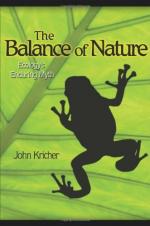|
This section contains 6,135 words (approx. 21 pages at 300 words per page) |

|
In the West, "natural philosophy" and "philosophy of nature" have developed side-by-side and at times have been confused. The first has been defined by Galileo, Auguste Comte, and Charles Darwin as the pursuit of a total but essentially objective knowledge of phenomena, whereas the second has oriented such thinkers as Gottfried W. Leibniz, Georg W. F. Hegel, and Henri Bergson toward an intuitive approach that nevertheless strives to be rigorous regarding the reality that underlies data derived from observation. Among the thinkers of this second category, those who have come more and more to be labeled Naturphilosophen, or "philosophers of nature," since the time of German Romanticism occupy a special place.
Since antiquity, the representatives of that tendency are generally committed to grasping the concrete character of nonmechanical, nonphysical reality or, as F. J. W. Schelling put it, the "productivity" concealed behind...
|
This section contains 6,135 words (approx. 21 pages at 300 words per page) |

|




